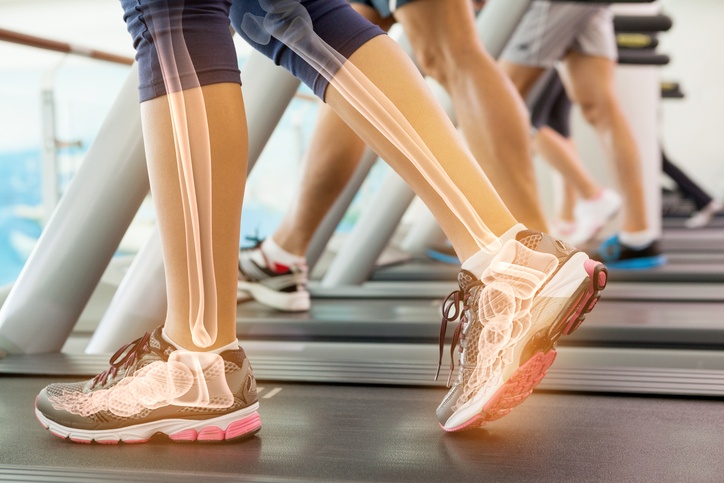
When the typical person thinks about their health they tend to concentrate on things like diet and exercise. However, what some don’t consider is the health of their bones. In fact, in some cases your dietary and exercise choices can lead to weakened bones. If your primary care provider thinks that you are trending towards weak bones, they might suggest that you have a Bone Densitometry scan.
Bone Densitometry, or DXA scan, is the only test that can diagnose osteoporosis and osteopenia. For those who don’t know what those conditions are, we’ll explain. According to WebMD, “Osteopenia refers to bone density that is lower than normal peak density but not low enough to be classified as osteoporosis.” And, according to the National Osteoporosis Foundation, “Osteoporosis is a bone disease that occurs when the body loses too much bone, makes too little bone, or both. As a result, bones become weak and may break from a fall or, in serious cases, from sneezing or minor bumps.”
Ultimately, your primary care provider will order a bone density scan in order to see the density of your bones. Derry Imaging notes all of the following as risks that could lead to osteoporosis:
- advanced age
- small bone stature
- family history of osteoporosis
- early menopause or ovaries removed before age 45
- prolonged immobility
- not enough calcium in diet (including as a child)
- lifestyle factors : smoking, excessive alcohol or caffeine intake (more than 3 cups of coffee per day)
- long-term use of corticosteroid medication (e.g. Prednisone)
- certain diseases, e.g. Hyperthyroidism”
Many of the items on the list above are beyond a patient’s control. For instance, there isn’t a way to fight a family history of osteoporosis or advanced age. With that being said, there are healthier choices that can be made to achieve long-term bone health. Here’s an action list for you:
Learn Your Family History
While you can’t avoid certain hereditary issues, it’s very smart to be aware of them. If your family members have experienced osteoporosis, hyperthyroidism or early menopause make sure to let your primary care provider know so that they can be ahead of any issues that might result.
Get Moving
As Derry Imaging noted, “prolonged immobility” can be a risk factor for osteoporosis. Regular exercise can help with that. If you aren’t sure how to integrate exercise into your schedule, Derry Wellness can help.
Journal
Some people who drink multiple cups of coffee per day are simply not aware of it. By writing down your regular intake of alcohol, caffeine and cigarettes you will be able to notice and change unhealthy lifestyle factors and will have an accurate record to show your provider at your next appointment.
—
Derry Imaging’s staff members are experts in bone health and have state-of-the-art GE Lunar Prodigy Bone Densitometry available at both their Derry and Windham, New Hampshire locations.
If you’d like to read more about the signs, process and results that can be provided via Bone Densitometry, click below.

